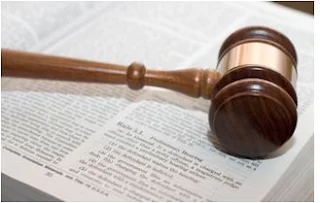Non-Muslim expatriates can now dictate where they want their assets to go when they die, after a decision to change rules governing wills. The changes will ensure there is no dispute or confusion over a deceased’s belongings and custody of children, and expats can register a will for about Dh500.
Abu Dhabi has had no way of registering wills drafted in the UAE or an expat’s home country.
Only Sharia was applied.
In most cases, a court would freeze the assets to ensure all heirs were contacted before the estate was split up, resulting in long delays and high legal costs. Yousef Al Ibri, Undersecretary at the judicial department, said the move was recognition of the "realistic needs" of all sectors of society in Abu Dhabi.
It laid down the legislative framework to protect the rights and freedoms of people of different faiths.
Mr Al Ibri said these rights would now be protected under the state’s constitution, "which affirms the enjoyment of foreigners of rights and freedoms prescribed in international charters".
"This will have a positive effect on attracting people of distinguished expertise to work and live in Abu Dhabi," he said. "This decision will constitute a quality leap towards enhancing the competitive position of Abu Dhabi emirate, establishing it as an ideal destination for residence and investment."
Sheikh Mansour bin Zayed, Deputy Prime Minister and Chairman of the Abu Dhabi Judicial Department, approved the changes that came into effect on Tuesday.
Wills in Abu Dhabi will also be registered in English, not Arabic.
Dubai International Financial Centre’s Wills and Probate Registry, which is linked to the Dubai Government, is the only registration system for wills in the Middle East and North Africa. It has registered 2,500 wills since its inception in 2015.
Sean Hird, director of DIFC Wills and Probate Registry, said the announcement of a registry of wills and probate in Abu Dhabi was a positive move for people living and investing in the emirate. "At DIFC, we have been providing eligible individuals with the option for the past two years and now offer various options for people to protect their assets in Dubai and now RAK," said Mr Hird.
"We hope this encourages asset owners to tackle their significant ‘life admin’ by thinking ahead to safeguard their assets."
The death of a breadwinner or homeowner can mean assets being frozen for months, and tens of thousands of dirhams in legal fees, particularly in the event of a dispute.
Some Abu Dhabi law firms have been writing invalid wills for expats, despite the documents having no legal standing.
Hesham Elrafei, a legal consultant and founder of the UAE legal portal Lex Animata, said the cost of registering a will in Abu Dhabi was expected to be negligible.
Mr Elrafei said those with property on Reem, Yas and Saadiyat islands would also be able to ensure their properties were distributed without dispute.
"This is an affordable service, which will not exceed Dh500 a will and the door is now open for all non-Muslims living in Abu Dhabi to register as per their choice," he said.
"This is to secure and protect their assets and properties in Abu Dhabi, which includes real estate, bank accounts, stocks, cars and end-of-service gratuity.
"A non-Muslim expat can now easily register his will in English to whoever he chooses to, whether his wife, daughter or any member of the family."


1 comment:
It was great to read your blog.
Turkey Visa Online
Post a Comment